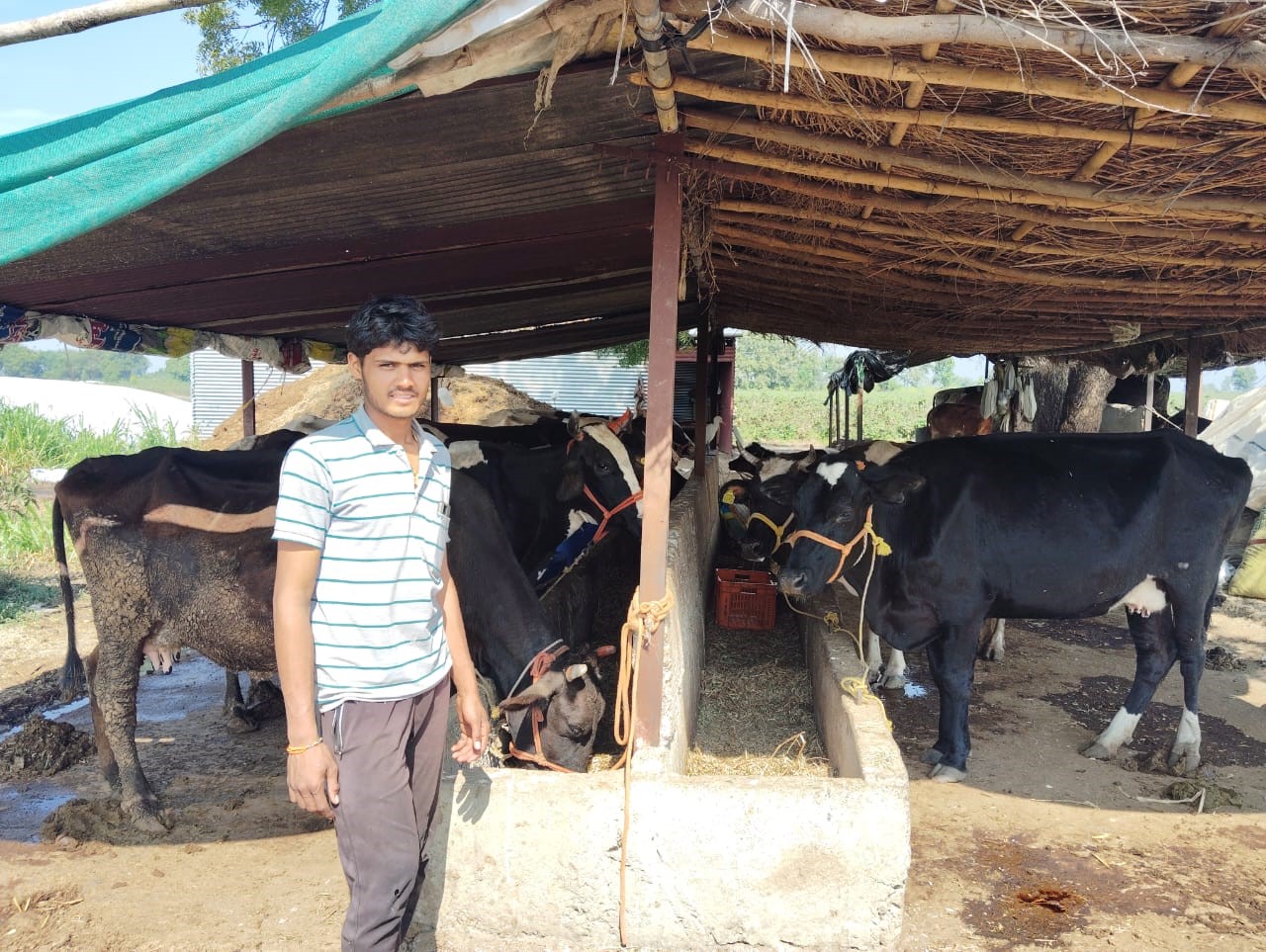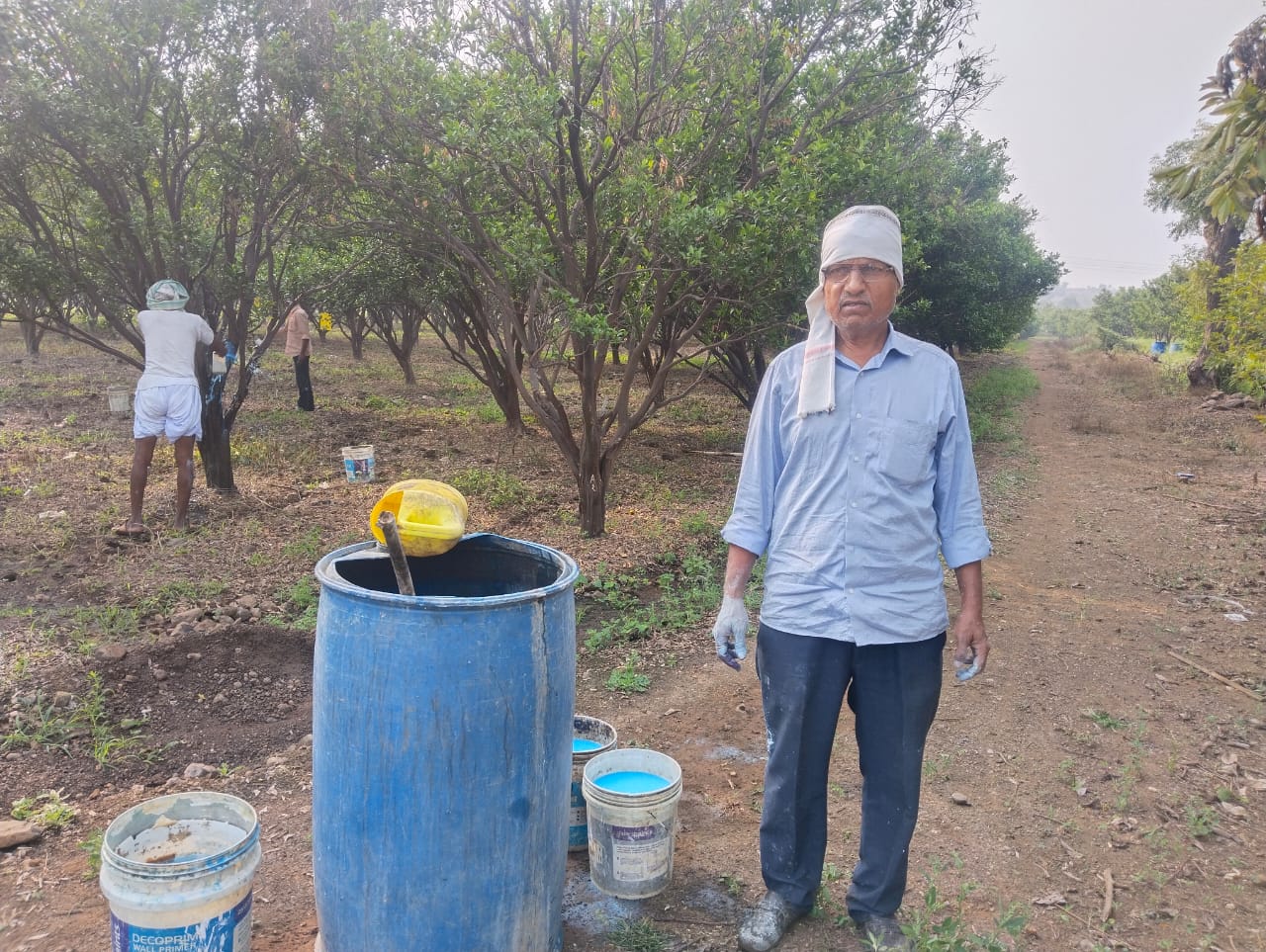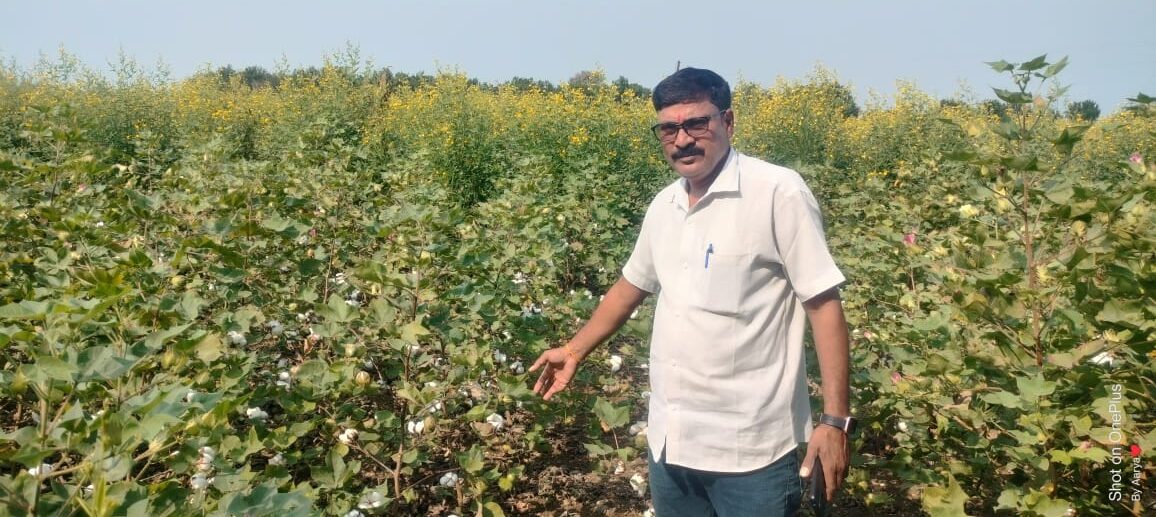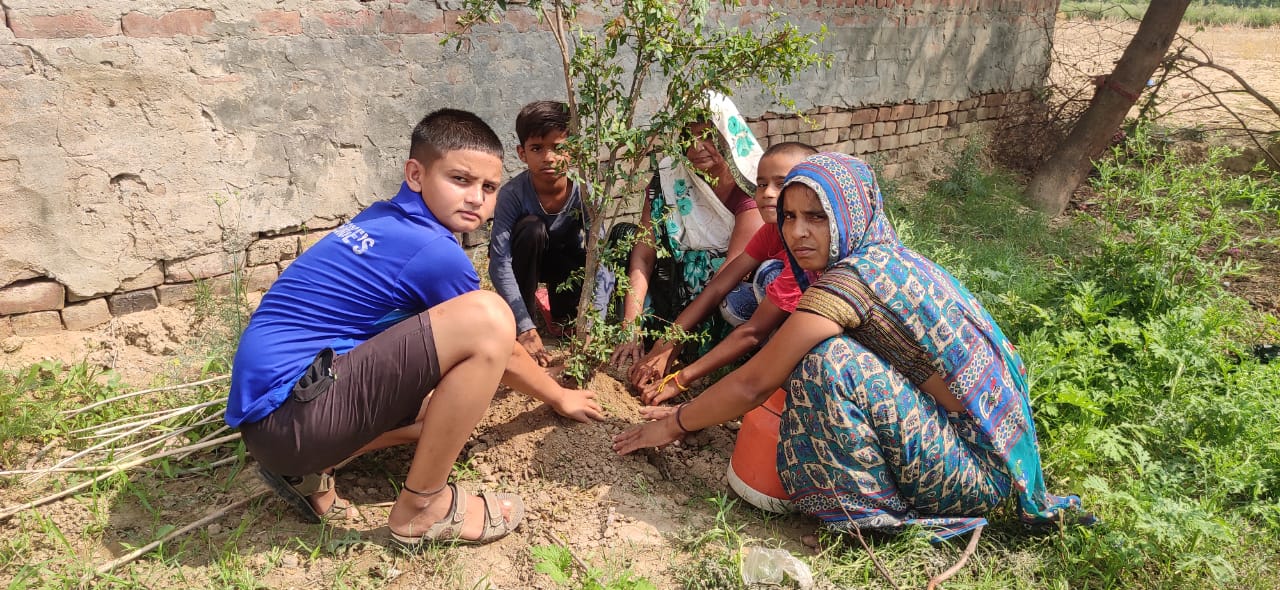SRIJAN reaches out to over 85,000 farmers all across its location for promoting sustainable agriculture practices.
SRIJAN has been consistently promoting sustainable agriculture practices with rural families in all its locations based on their current needs. Amidst this climate change, the land is one of the major carbon sinks. Agriculture activity accounts for 18% of India’s total Green House Gases (GHG) emissions (mainly methane and nitrous oxide), the second-largest contributor after the energy sector. Through sustainable agriculture practices, the use of chemical fertilizers and pesticides can be reduced significantly. Also, soil health can be improved through increasing organic carbon content within the soil, and thus, carbon can be extracted from the atmosphere. Tribal families in areas like Pratapgarh district, in Rajasthan, can contribute more to sustainable agriculture as farmers in these families are hardworking and have the resources required for agro-ecological practices. Also, crop diversification with new technological interventions enables marginal tribal farmers to make optimum use of their land and increase their income. Most tribal families living in deep pockets have marginal landholdings. SRIJAN does have an outreach to 85,471 farmers all across its location for promoting sustainable agriculture practices.
Pictures this: Dhulki Bai Meena adopted diversified livelihood options for her earnings as a master farmer in her village Kataron Ka Khera – B, Peepalkhont block, Pratapgarh district, Rajasthan.
She belongs to a cross-learning platform (Saraswati Maa Women Producer Group (WPG)) promoted by SRIJAN and is engaged in many activities organised during regular capacity-building events. She belongs to the Meena community, categorized as Schedule Tribes (ST) by the Government of Rajasthan.
Her husband, Maliya Ram supported her to learn new livelihood options. She has a landholding of 3.62 acres (07 bigha in regional language) nearby her house, which she uses to cultivate soybean, maize, wheat, and gram. Her average household annual income is 54,800 INR, out of which her expenses are 53,800 INR. Of the total annual income, 58% of income comes from agriculture and 3% from local labor activities.
In order to make agriculture profitable and sustainable, SRIJAN has been promoting good agriculture practices with support from RBL Bank Ltd under a CSR project since October 2019. The team supported this farmer with many capacity-building events for good practices like using organic extracts like Ghan-Jeevamrut, vermicompost, bio-fertilizers (NPK Liquid), line sowing of crops, use of sprinkler irrigation, crop diversification activities like Nano Orchards, Multilayer Farming, etc. Firstly, training was done during the last Rabi season of the crop, i.e., in November. The farmers were trained to adopt natural farming for the wheat crop, which these farmers certainly use for their consumption. The idea was straightforward, i.e., promotion of food crops naturally to support their well-being. Thus, in November 2019, the farmers agreed to do so and adopted many good practices. Dhulki Bai took 25kg of improved variety of wheat, i.e., RAJ 4120 for half-acre of her land, and also made three quintals of Ghan-Jeevamrut, i.e., made up of three quintals of farmyard manure mixed with a decomposed solution (Jeevamrut) of water, cow dung, jaggery, soil, and gram flour. And thus, broadcasted these three quintals before the last cultivation. She also did line sowing of wheat, which is generally not used in the intervening area. Apart from this, she used 100kg of vermicompost (which she manufactured using vermi-bag and earthworms installed near her agriculture field) after the second irrigation. She learned all these activities through cross-learning platforms and regular training by the organization.
Now she can produce approximately six quintals of vermicompost each quarter. The activity saves 580 INR fertilizer cost per bigha of the wheat crop and benefits the health of the soil. The couple continues to use the above-mentioned organic extracts in all agriculture seasons, including Kharif, Rabi, and Zaid. Dhulki Bai has now also expanded its use from one bigha of land to the entire land. She has also installed a mini sprinkler in her natural wheat demonstration plot through the CSR support and thus, finds it a less labor-intensive and water-saving technique for irrigation. Her husband once said, “Sir, ye to bahut acchahai. Jitne der me ek bigha me paani dene me samaylagta, utne der me to mai dusrakaam phi karleta hu. Saath me paani phi kam lag rha hai. Mujhe apne neeche wale khet me bhi lagana hai.” She got produce of five quintals of natural Wheat from the same plot without much decline in productivity in the first year but definite decline in the cost of cultivation. She has also created several other livelihood opportunities as SRIJAN supported her to have a Nano Orchard of guava and vegetables as intercrop through another project for creating multiple livelihood options and good agriculture practices. Now her Nano Orchard Plot of guava is two years old with significant growth, and also, through intercropping of vegetables seasonally, she can earn more. Recently, before COVID-19 lockdown in 2021, she did multilayer farming in 1,800 Sq.ft area with six vegetable crops of different types, i.e., tuber crop (turmeric), leafy crops (spinach and coriander), creeper crop (bitter gourd, bottle gourd, ridge gourd) and border crop (okra). She developed this frame from low-cost bamboo in March, and since then, she has earned 19,600 INR from selling vegetables and 3,000 INR from selling chili saplings to the farmers in native villages. Thus, in total, she has earned 22,600 INR in a span of three to four months in a small area of 1,800 Sq.ft. She has adopted vermicompost, Jeevamrut, and Neemastra to cut her cost of cultivation of vegetables. Thus, multiple income options have evolved, which help Dhulki support her family.
Rural households are heavily dependent upon agriculture for their livelihoods. Dependence upon single crop or single practice often adds to the risk of the farmers and decreases productivity. Building a portfolio of activities, within agriculture including multilayer farming and Nano Orchard techniques, presents multiple avenues to generate income. SRIJAN promotes women producer groups (WPGs) in its operational districts where regular interactions are done and thus, their capacity to plan and execute the various livelihood activities is improved. On this platform, women are also linked through multiple sources of livelihood and they contribute equally to household income generation.
Nitesh Kumar
Team Leader, SRIJAN
Self-Reliant Initiatives through Joint Action (SRIJAN) is a grassroots NGO working for livelihoods enhancement of the poorest of the poor and marginalized sections of the society in 16 districts of MP, Rajasthan, UP and Chhattisgarh. SRIJAN employs over 130 team members across these locations to deliver its objectives and visions for empowering the poor. SRIJAN wishes to see wellbeing of the poor and ensure dignity of all in our society, in the context of multidimensional poverty and wish to “Make Rural Community Self-Reliant and Live with Dignity”.








